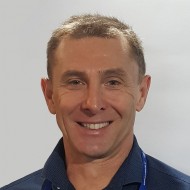Physician
Rata
Alternative titles for this job
Physicians are medical specialists who provide non-surgical advice and treatment to patients referred to them by other doctors.
Pay
Trainee physicians can earn
$64K-$205K per year
Qualified physicians can earn
$170K-$251K per year
Source: ASMS and RDA, 2020 - 2024.
Job opportunities
Pay
Pay for physicians varies depending on seniority, hours, location and how often they provide on-call or emergency cover.
Physicians who work for Te Whatu Ora Health NZ (previous DHBs)
- House officers (supervised junior doctors) can earn $64,000 to $145,000 a year.
- Registrars (trainee physicians) can earn $80,000 to $205,000.
- Qualified physicians can earn $170,000 to $251,000.
Physicians working in the private sector can earn more than this.
Sources: Association of Salaried Medical Specialists, 'New Zealand District Health Boards – Senior Medical and Dental Officers Collective Agreement, 1 April 2022 - 31 March 2023'; and Resident Doctors' Association, 'RDA and 20 District Health Boards Multi Employer Collective Agreement 17 March 2021 to 31 March 2024'.
- Te Whatu Ora website - Senior Medical and Dental Officers Collective Agreement 1 April 2022- 31 March 2023 (PDF - 704KB)
(This information is a guide only. Find out more about the sources of our pay information)
What you will do
Physicians may do some or all of the following:
- examine patients and investigate and identify complex medical problems
- consult with other medical professionals about patient care and treatment
- advise on medical treatment and discuss this with patients or their caregivers
- provide medical treatment, check patients' progress and provide follow-up care
- keep medical records and send final reports to general practitioners
- care for emergency referral patients, such as patients with critical illnesses
- teach medical students and trainee physicians
- carry out research.
Skills and knowledge
Physicians need to have knowledge of:
- anatomy and how the human body works
- different diseases and illnesses
- medicines and treatments
- diagnostic skills
- research, treatments and practices
- medical ethics and law.
Physicians also need skills and knowledge specific to their area of specialisation. For instance, cardiologists need skills and knowledge related to treating diseases of the heart.
Working conditions
Physicians:
- often work long and irregular hours, including evenings, nights and weekends
- work in hospitals, clinics and private practices
- work in conditions that may be stressful, as they deal with seriously ill patients
- may travel locally to visit hospitals in their region or overseas to attend conferences.
What's the job really like?

Dr Stephen Child
Physician
Why did you decide to become a physician?
“Essentially there were two reasons. I looked at psychiatry, surgery in general, radiology, anaesthesia, as well as others, and decided there were things about those specialities that didn’t meet my personality. So partly I chose physician because I excluded some of the other specialties.
“The other reason I chose to be a physician was because I enjoy the intellectual challenge and the variety that comes with being a physician. I didn’t want to do the same old operation over and over for my entire career.”
What do you enjoy most about your work?
“I love the fact that every single day I’m issued a challenge to try and come up with a diagnosis. I also enjoy the time I spend with my patients, I enjoy getting to know my patients as people.”
What’s been the highlight of your career so far?
“The career highlight for me is the number of times when I’ve been working at the hospital for 12, 14, 16 weeks and really feeling like I need a break, having that break and then coming back and realising that I love my job.”
Entry requirements
To become a physician you need to:
- complete the Health Sciences First Year programme at University of Otago, or the first year of either the Bachelor of Health Sciences or Bachelor of Science in Biomedical Science at Auckland University
- complete a five-year Bachelor of Medicine and Bachelor of Surgery (MBChB) degree at Otago or Auckland
- work for two years as a house officer (supervised junior doctor) in a hospital
- complete another six years of specialist training and examinations to become a Fellow of the Royal Australasian College of Physicians.
You also need to be registered with the Medical Council of New Zealand.
- University of Otago website - Health Sciences First Year programme
- University of Otago website - Bachelor of Medicine and Bachelor of Surgery
- University of Auckland website - Bachelor of Medicine and Bachelor of Surgery
- Royal Australasian College of Physicians website - becoming a Fellow
The Vulnerable Children Act 2014 means that if you have certain serious convictions, you can’t be employed in a role where you are responsible for, or work alone with, children.
Secondary education
NCEA Level 3 is required to enter tertiary training. Useful subjects include mathematics, chemistry, physics, biology, health education and English.
Personal requirements
Physicians need to be:
- motivated and disciplined
- able to work well under pressure
- able to make good decisions, and solve problems
- good time managers
- excellent at analysis and interpretation
- good at report writing
- good at communicating and inspiring confidence in others
- understanding of other cultures' attitudes to medical treatment.
“It’s important to be able to listen carefully to patients, to empathise with them, and then to make decisions with your patients as opposed to telling them what to do.”

Dr Stephen Child
Physician
Useful experience
Useful experience for physicians includes:
- work in hospitals or other health-related work, such as in a clinic
- work involving caring for people.
Registration
Physicians need to be registered with the Medical Council of New Zealand.
Find out more about training
- Medical Council of New Zealand (MCNZ)
- 0800 286 801 -enquiry@mcnz.org.nz - www.mcnz.org.nz
- Royal Australasian College of Physicians (RACP)
- 0508 697 227 - www.racp.edu.au
What are the chances of getting a job?
Factors contributing to shortage of physicians
The shortage of physicians is due to:
- New Zealand's growing and ageing population, which means increasing demand for physicians to deal with illnesses and diseases
- an ageing workforce – nearly a third of specialist doctors, including physicians, are over 55 years old and due to retire in the next 10 years
- some physicians moving overseas for better pay and working conditions
- a worldwide shortage of specialist doctors, which means that it can be hard for New Zealand to attract physicians from overseas to work here.
General and many specialist physician roles including palliative medicine specialist, cardiologist, paediatrician and emergency medicine specialist appear on Immigration New Zealand's regional and long-term skill shortage lists.
This means the Government is actively encouraging skilled physicians from overseas to work in New Zealand.
According to the Census, 1,260 physicians worked in New Zealand in 2018.
Extra payment for graduates working in hard-to-staff locations
Te Whatu Ora runs a voluntary bonding scheme with payments to encourage graduate doctors to work in hard-to-staff communities and specialisations.
Physicians mostly work for public and private hospitals
Physicians work in both public or private hospitals, and may also work in university medical schools.
- Te Whatu Ora Health NZ employs all physicians who work in public hospitals.
- Private hospitals usually employ physicians on a casual basis.
- The medical schools at the Universities of Auckland and Otago employ physicians in teaching and research roles.
Sources
- Association of Salaried Medical Specialists, ‘Taking the Temperature of the Hospital Specialist Workforce, August 2014’, accessed November 2017. (www.asms.org.nz).
- Immigration New Zealand, 'Long Term Skill Shortage List', 27 May 2019, (www.immigration.govt.nz).
- Immigration New Zealand, 'Regional Skill Shortage List', 27 May 2019, (www.immigration.govt.nz).
- Medical Council of New Zealand registration data, 30 June 2017.
- Stats NZ, '2018 Census Data', 2019.
(This information is a guide only. Find out more about the sources of our job opportunities information)
Progression and specialisations
Physicians may progress to teach students and trainee physicians at larger hospitals. They can also become senior consultants responsible for their department, or clinical directors, combining an administrative role with a physician role.
Physicians can specialise in a number of areas, including:
- Cardiologist
- Cardiologists specialise in diseases of the heart.
- General and Acute Care Physician
- General and acute care physicians diagnose and manage conditions that may be complex, difficult to diagnose, or involve multiple organs and systems of the body.
- Intensive Care Physician
- Intensive care physicians diagnose and treat patients with acute, severe and life-threatening disorders of internal vital systems.
- Medical Oncologist
- Medical oncologists specialise in the treatment of cancer.
- Neurologist
- Neurologists specialise in diseases of the nervous system, including the brain.
- Paediatrician
- Paediatricians specialise in the medical care of infants, children and adolescents.
Last updated 11 December 2024


